
Outside USA: +1‑607‑330‑3200

Sustainable Tourism Destination Management Self-Paced Cornell Course
Course overview.
This course aims to train global hospitality and tourism professionals in using sustainable practices across all areas of the tourism industry. Throughout the course, you will be introduced to innovative, data-driven methods for destination management, delivered by over 20 world-renowned experts in the field. You will begin by identifying the different components that make up the global tourism industry and examine the effects each of these components has on a destination’s social, cultural, and environmental well-being. You will then acquire the tools needed to manage your destination sustainably by designing a climate action plan, documenting and accommodating natural capital needs, improving land-use planning, engaging with local communities, and managing public-private partnerships. Ultimately, you will be able to contribute to the economic development of a destination while also protecting its health.
Key Course Takeaways
- Define the global tourism economy and measure the social and environmental impacts of tourism
- Document water, waste, energy, and natural capital management needs
- Design a climate action plan for your tourism destination
- Track how tourism can support essential economic development goals
- Facilitate an inclusive process where local communities review and protect their own cultural and natural assets
- Transform destination governance by promoting public-private partnerships, data-driven decision making, and innovative financing
- Synthesize sustainable destination management tools by applying them to real-life tourism case studies

Download a Brochure
Strategic partners.
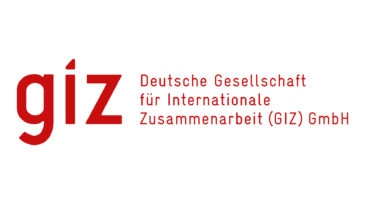
How It Works
Course authors.

- Certificates Authored
Mark Milstein is Clinical Professor of Management and Director of the Center for Sustainable Global Enterprise at the Samuel Curtis Johnson Graduate School of Management, Cornell University. He conducts applied research in and oversees the Center’s work on market and enterprise creation, business development, clean technology commercialization, and sustainable finance.
Dr. Milstein specializes in framing the world’s social and environmental challenges as unmet market needs which can be addressed effectively by the private sector through innovation and entrepreneurship, thereby allowing companies to achieve financial success by creatively addressing problems such as climate change, ecosystem degradation, and poverty. He has received funding from the National Science Foundation, the Bill & Melinda Gates Foundation, the Rockefeller Foundation the S.C. Johnson Foundation, SEvEN, the World Bank, the University of Queensland, and the Water Resources Institute. Over the past decade, Dr. Milstein has worked with more than 100 firms across a range of industries, including renewable energy and carbon markets, life sciences and sustainable agriculture, consumables, food and nutrition, healthcare, tourism and hospitality management, as well as finance and international development.
Dr. Milstein’s work and perspectives have been featured in The New York Times, MSNBC, CNBC, Forbes, The Guardian, and GreenBiz. He is a frequent speaker on the topics of strategy, organizational change, and innovation related to business and sustainability. He also consults with a number of multinational firms, small- and medium-sized enterprises, and NGOs. Dr. Milstein currently serves on the board of directors of Livelihood Basix International and as a board member for Johnson & Johnson’s Earthwards Program.
- Omnichannel Leadership Program
- Sustainable Business
- Food Executive Program

Megan Epler Wood is a leader, educator, and consultant who has dedicated her professional career to the implementation of sustainability practices in the field of tourism. She has worked for over 30 years to inform leaders, students, and business professionals across the globe on the use of well-researched and sustainable business, environmental conservation, and inclusive economic development tools. As program director of the Sustainable Tourism Asset Management Program (STAMP), Ms. Epler Wood seeks to increase collective knowledge and understanding of how to more effectively manage tourism destination assets over time to improve maintenance; ensure proper valuation; and help offset the influences of poverty, ecosystem degradation, climate change, land tenure, and the lack of government investment in vital local infrastructure in underdeveloped economies worldwide.
Who Should Enroll
- Hospitality and tourism professionals
- Business leaders
- Regional and urban planners
- Local, municipal, and national government employees
- Marketing and PR professionals
- Land and marine management professionals
- Economic development professionals
- Civil and systems engineers

What You'll Earn
- Recognition of Achievement from Cornell’s SC Johnson College of Business
- 40 Professional Development Hours (4 CEUs)
Watch the Video
Request information now by completing the form below..
Enter your information to get access to a virtual open house with the eCornell team to get your questions answered live.

let's change the world through tourism.
GreenStep Sustainable Tourism provides assessments, programs, and certifications to help tourism destinations and businesses measure and improve their sustainability performance.
Our Partners

Programs and Services for the Tourism Industry
Assessments & action plans.
Measure your sustainability performance, identify gaps, set goals, create an action plan, and access support:
- Comprehensive sustainability assessments for tourism businesses and destinations
- Engagement programs for tourism businesses
- Sustainability and climate action plans
- Sustainable Tourism Intelligence Dashboard
- Sustainable Tourism 2030 Pledge
Programs for Tourism Destinations
Programs for Tourism Businesses
Sustainable Tourism certification
Take your commitment to the next level and become GreenStep Sustainable Tourism Certified with our Global Sustainable Tourism Council-Recognized and aligned standards.
- Certification for tourism destinations
- Certification for tourism businesses
- Expert guidance and support
- Get recognized for your sustainability achievements
Certification for Tourism Destinations
Certification for Tourism Businesses
GreenStep EcoFund
Fund large energy saving retrofits and carbon reduction projects, to support your climate action and net zero targets. GreenStep EcoFund provides:
- Energy assessments
- Carbon measurement and science-based reduction targets
- Project identification, prioritization and implementation support
- Significant cost saving
Sustainability training & Support
- Training, workshops, and facilitation for tourism destinations and businesses
- Global Sustainable Tourism Council training
- Custom program development
Climate Action
GreenStep can help your tourism business or destination measure and create a plan for reducing your carbon footprint.
- Organizational and event carbon footprint measurement
- Destination and visitor economy carbon footprint measurement
- EcoBase carbon measurement software
- Carbon measurement training programs
- Climate action plans
GreenStep has helped over 6000 businesses since 2008.
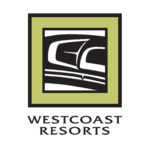
Helping the Tourism Industry Meet the UN Sustainable Development Goals
The criteria used in our assessments and certifications for tourism businesses and destinations have achieved Recognized status with the Global Sustainable Tourism Council, ensuring global best practices and covering all 17 UN Sustainable Development Goals.
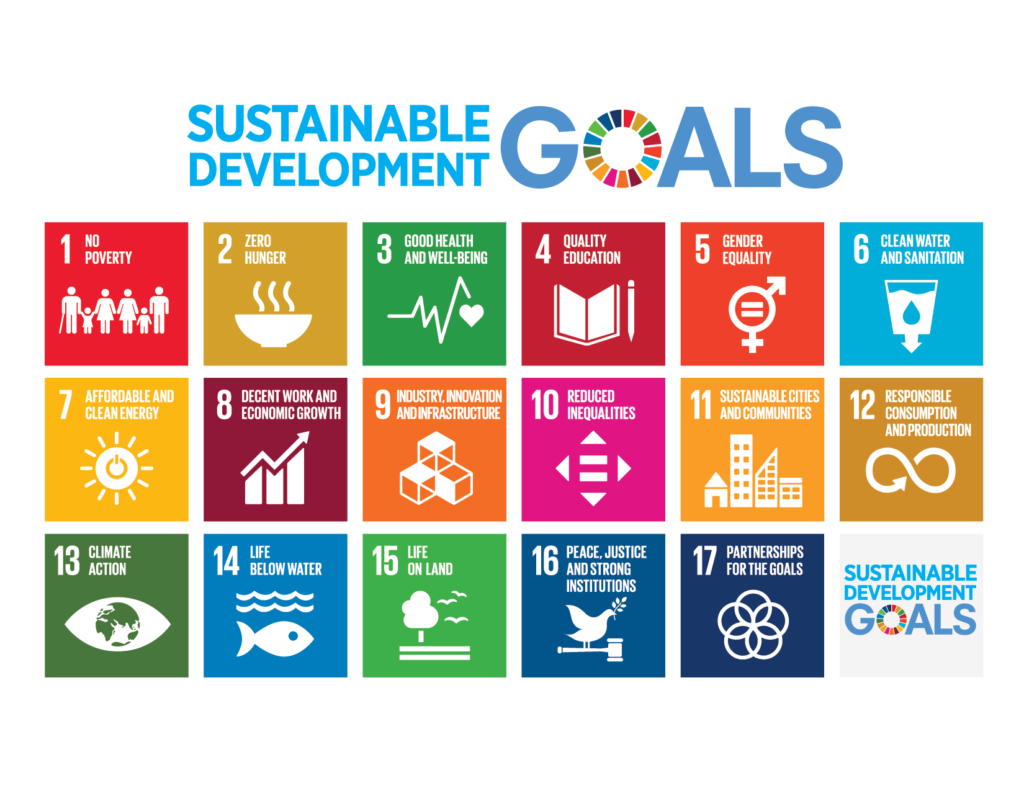
Testimonials
“Thank you for all your help and guidance. It was such a great learning opportunity for us as a centre, I am excited to keep moving forward with our sustainability practices and adapting new ones as we grow as a visitor centre!
“I was searching for a green program for the hotel. Having a rating is nice but having a sustainability action plan is what got me excited about joining.”
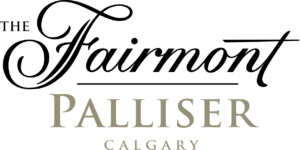
“GreenStep Sustainable Tourism helped us focus our commitment to sustainability and look deeply into our winery operations. We have made changes and engaged our employees in finding additional opportunities for continued sustainability initiatives.”
Not sure how sustainable you are?

Newsletter Sign-up
Sign up to receive news and updates from GreenStep Sustainable Tourism
Thanks! You are now subscribed to the GreenStep Sustainable Tourism emailing list. Stay tuned for industry news, events and updates from our team.
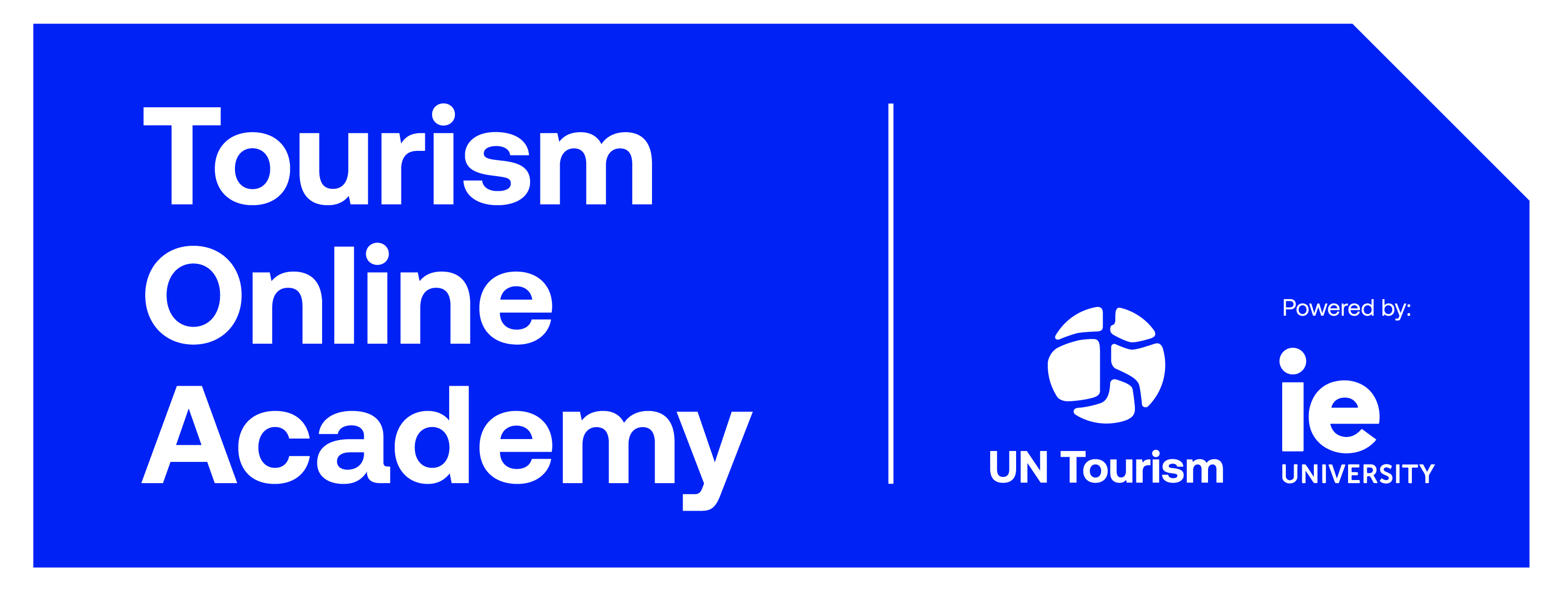
Welcome to the Tourism Online Academy
The Tourism Online Academy is an online learning platform that will provide self-paced, 100% online courses that mainly focus on concepts, areas of interest and fundamental principles related to the tourism sector, addressing the challenges it faces such as globalization, digital revolution, travel marketing and sustainability, among others. These flexible courses allow participants to reconcile academic, professional and other personal commitments.
IE University and the World Tourism Organization of the United Nations have partnered to launch the Online Tourism Academy with the support of different partners – and we are expecting many more to join this initiative in the future.
This high-quality learning experience is available for everyone and caters to those who are looking to improve or supplement their current skillset in order to adapt to this fast-growing and evolving sector. Through these first programs, participants will acquire managerial skills in digital marketing, finance, strategy, operations, innovation and digital transformation.
Choose your course

Introduction to Tourism – Industry Management
This Massive Open Online Course (MOOC) is suitable for managers and high potential individuals seeking to update their knowledge in tourism industry management and its integration into the Tourism, Hospitality and Destination Management industries. This is achieved through the 100% online training course that includes multimedia content, short videos with professors and experts, readings, exercises and activities and many other learning materials within specific modules. You can enroll and study the content for free and only pay € 49 if you want to do the assignments and receive a certificate of completion.
Institution:

INTRODUCTION TO INTERNATIONAL TOURISM AND TRAVEL LAW
You can study the content for free and only pay € 49 if you want to do the assignments and receive a certificate of completion.

مقدمة في إدارة قطاع السياحة (Introduction to Tourism – Industry Management)
This Massive Open Online Course (MOOC in Arabic) is suitable for managers and high potential individuals seeking to update their knowledge in tourism industry management and its integration into the Tourism, Hospitality and Destination Management industries. This is achieved through the 100% online training course that includes multimedia content, short videos with professors and experts, readings, exercises and activities and many other learning materials within specific modules. You can enroll and study the content for free and only pay € 49 if you want to do the assignments and receive a certificate of completion.

How to Become a Restaurateur
This MOOC (Massive Open Online Course) completion certificate is suitable for professionals and individuals seeking to learn how to open their food & beverage concept and create unique selling points that will distinguish your business from the competition. Training with world-leading hospitality experts at the Swiss Education Group (SEG), you will be able to create profitable menus, structure and organize a kitchen, and build a brilliant concept brand.

Artificial Intelligence (AI) in Hospitality: Challenges & Business Opportunities
On this course, you’ll discover how Artificial Intelligence (AI) has the potential to change – and challenge – the hospitality industry. Understand how to grasp the opportunities it presents, including lowering costs, improving customer satisfaction, and innovating front office and housekeeping. You’ll identify how to distinguish between terms such as artificial intelligence, machine learning, and deep learning. You’ll get a comprehensive overview of the legal and ethical considerations of AI and consider customers’ expectations of how digitalisation could change the hotels of the future.

Mastering Wine Tasting
Learn to taste wines like a pro! Cultivate an analytic mindset while tasting and develop a rich vocabulary to describe wines & advocate your preferences easily. Discover viticulture, oenology, grape varieties, and soil relevance. Delve into biodynamic, organic, and natural wines, wine dinners, tastings, and heritage. From reading a wine label to storing techniques, this short course will give you the knowledge to master any wine tasting.
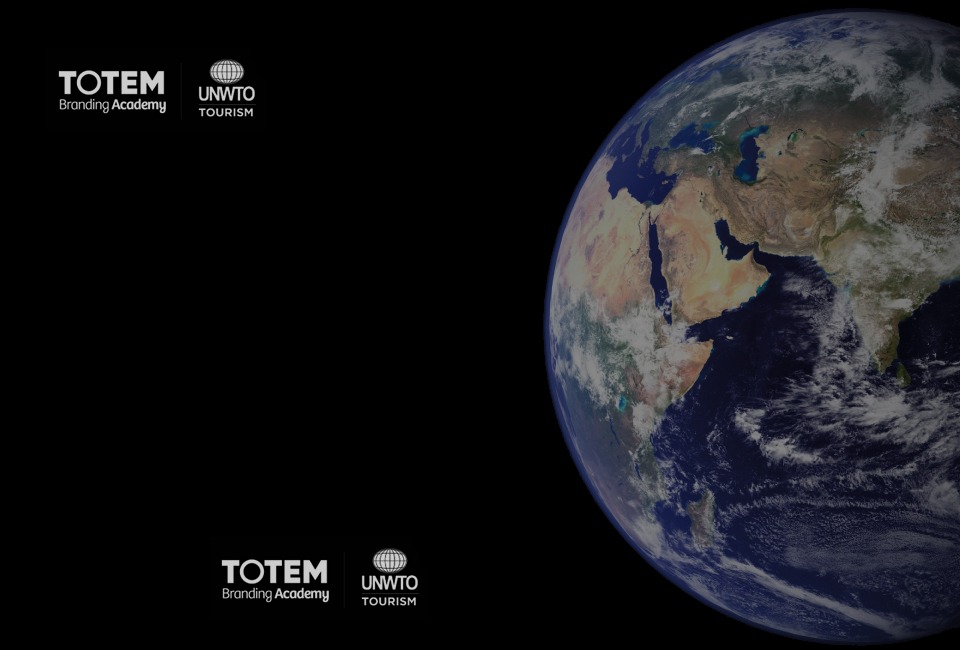
Branding + Innovation: “Brandinnovation”
En el mundo se están produciendo muchos cambios simultáneamente. Uno de los más importantes es que el branding ya no se considera un gasto y comienza a valorarse como una inversión. Este es uno de los cambios más significativos que tendrá un mayor impacto en la industria turística en los próximos años. El activo más importante y probablemente el único activo de una empresa que incrementa su valor con el tiempo: la marca. En otras palabras, el activo más valioso de una empresa empieza a ser su buen nombre, su marca y su reputación. Una marca con un fuerte propósito no solo ayuda al bien general de la sociedad, sino que también ayuda a los empleados y a los clientes a saber qué representan y en qué creen. Este Mooc es esencial para ampliar su conocimiento sobre la construcción de marca en el sector turístico para crear valor, generar confianza y destacar en un mercado altamente competitivo.
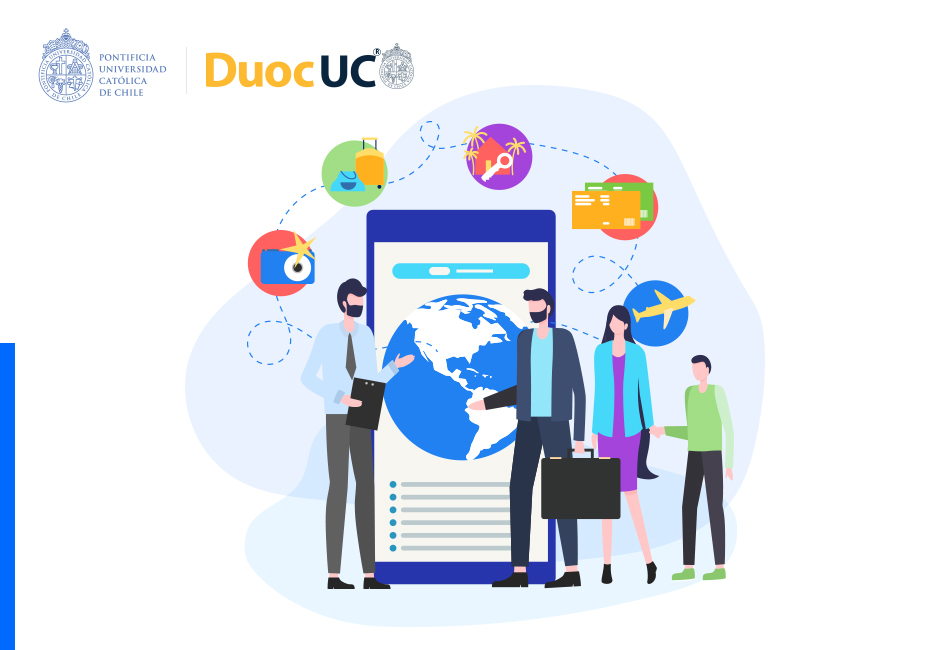
Retos de la Industria del Turismo
Este MOOC (Massive Open Online Course) está dirigido a personas que deseen profundizar sus conocimientos en los próximos retos y tendencias de la industria del turismo. El curso es 100% online y tiene por objetivo presentar una aproximación a los desafíos del siglo XXI en la industria turística, para lo cual, se han seleccionado cinco temas que permitirán aprender y/o mejorar el desempeño de la industria turística local y global. Las cinco temáticas son: sostenibilidad turística, hospitalidad y servicio al cliente, diseño de productos y experiencias memorables, principales tendencias del turismo como experiencia de ocio y turismo de negocios.
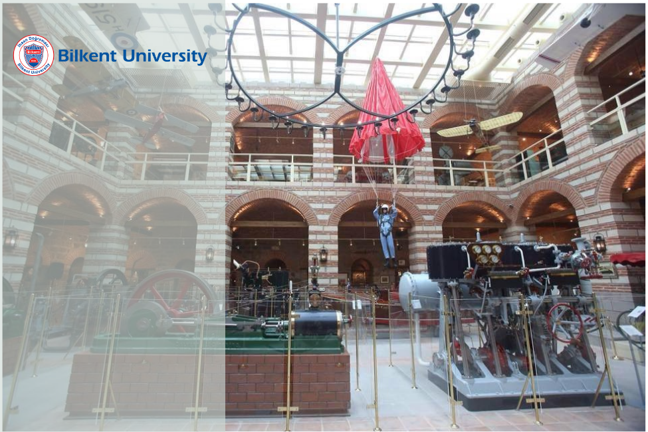
MARKETING MUSEUMS AND VISITOR ATTRACTIONS
This Massive Open Online Course (MOOC) is suitable for professionals and individuals seeking to learn introductory concepts and expand their knowledge on marketing for museums and visitor attractions. This 100% online and self-paced training course includes multimedia content, short videos with professors, and readings in each module. You can study the content for free and only pay € 49 if you want to complete a short quiz at the end of each module and receive a certificate of completion. You must earn 60% or higher to earn your certificate.

Sustainable Destination Management
This MOOC (Massive Open Online Course) is suitable for future-oriented, young but also well-experienced professionals who would like to get acquainted with key topics of nowadays tourism – Destination Management and Sustainability. Attendees will understand both topics including the link between them to recognize the need for a united application of the two management dimensions. This 100% online course consists of 4 modules. Each of it encompasses brief informative videos, a great choice of interviews with international tourism experts, relevant short readings, and supportive web links, research exercises and online videos for a long-lasting learning effect.

Introducción a la Hotelería y el Turismo
Este MOOC (Massive Open Online Course) está dirigido tanto a profesionales como a personas que desean conocer las principales características del fenómeno turístico. En este curso online analizaremos y profundizaremos sobre estas características. Los conceptos de turismo y hospitalidad nos permitirán abordar la relevancia que tienen en la economía, la cultura y el medioambiente a nivel mundial. Debes alcanzar un 60% o más para obtener el certificado.

Brief Introduction to Chinese Tourism
This MOOC (Massive Open Online Course) completion certificate is suitable for tourism professionals and individuals seeking to learn introductory knowledge on China and Chinese tourism. This 100% online course consist of four modules which summarize some of the most important aspect to take into account in order to work with Chinese tourists.
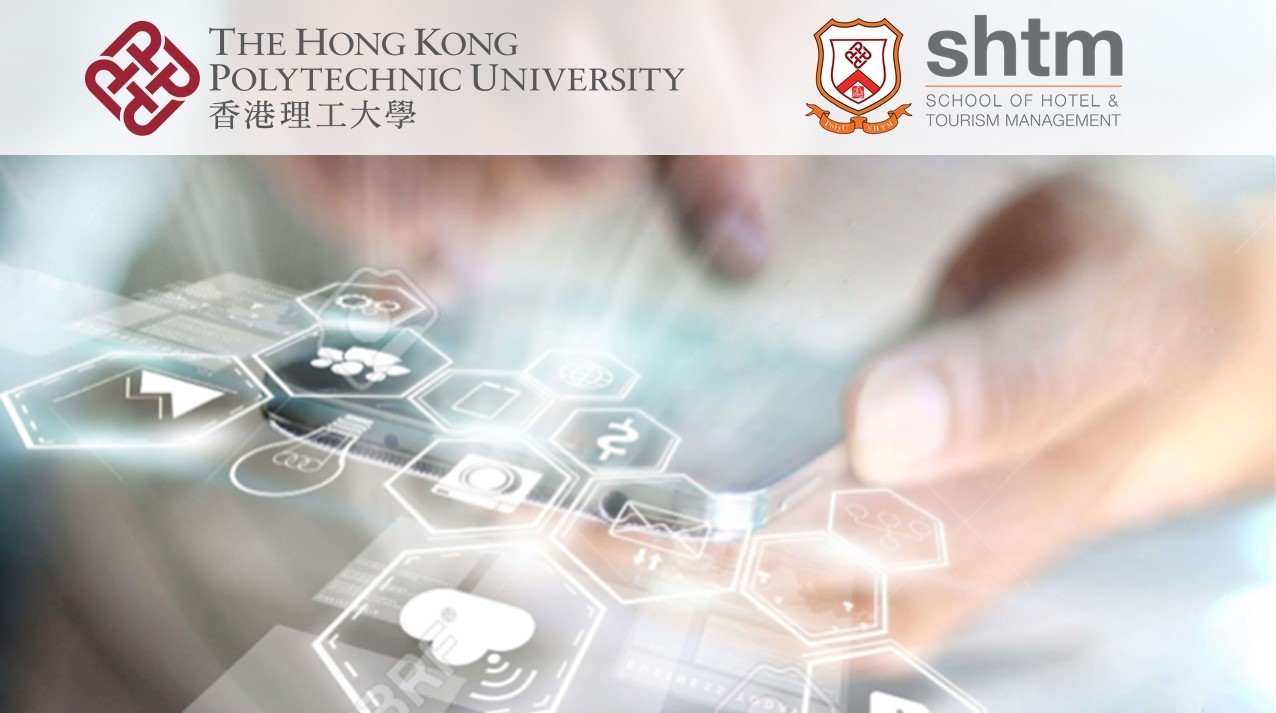
Innovation and Technology Management in Tourism and Hospitality
Gain an in-depth understanding of the strategic applications of ICT (information and communication technologies) innovations in the hospitality and tourism industry. Learners will learn about the roles of ICT infrastructures and tools in shaping business environment, business models, marketing practices, revenue strategies, and customer services. We will also discuss the dynamics that is generated in the development of ICTs and its impact on hospitality and tourism organizations. The 100% online course consist of 8 weeks’ content and different assessments. You must earn 60% or higher to earn your certificate.
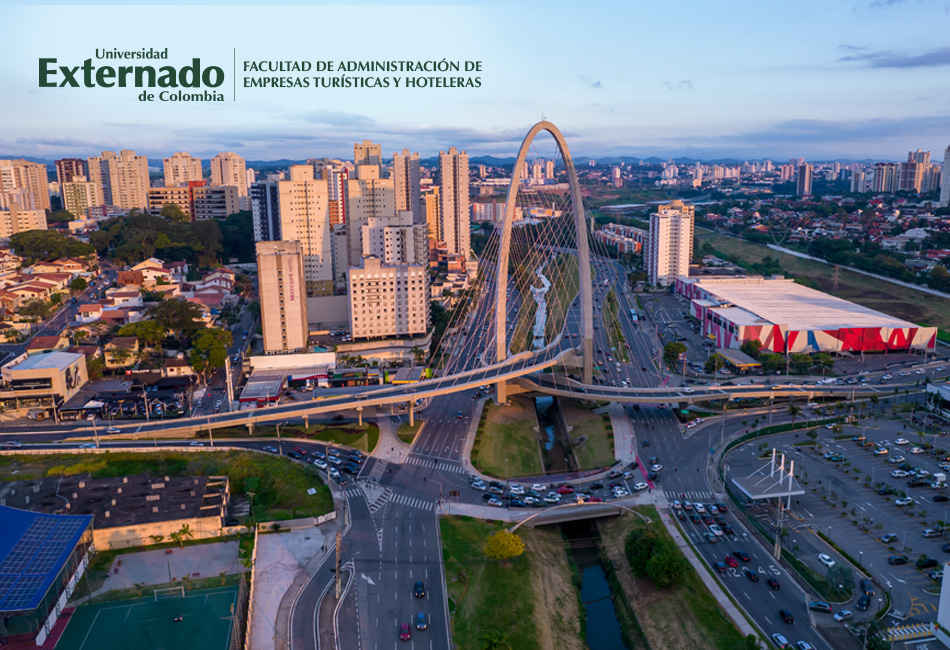
Innovación turística
Este MOOC (Massive Open Online Course) está dirigido a todo aquel que desee conocer los aspectos generales de la Innovación Turística. No requiere saberes previos ni pertenecer a una disciplina especial. Este curso 100% online consta de contenidos presentados en texto y videos y cuestionarios que se encuentra al final de cada módulo; los cuales tienen como propósito verificar la comprensión de los temas. Se debe aprobar un 80% o más para obtener el certificado correspondiente.

Strategic Communication for Tourism
This Massive Open Online Course (MOOC) aims to present foundational understanding of strategic communication for tourism, including topics from stakeholder management to branding. Ensure the communication strategies of your destination organization or company are generating positive impact in line with your objectives. It is suitable for managers, professionals and individuals seeking to gain practical understanding for immediate application of new techniques. This 100% online free course is full of multimedia content, including videos with instructors, interviews with experts, reading suggestions and quizzes. You may also pay 49€ + Iva and get your certificate.

Negotiations in Tourism
This MOOC (Massive Open Online Course) completion certificate is designed for hotel managers, sales managers, professionals, academics, students, politicians seeking to provide them with an in-depth understanding of negotiation strategies and techniques in the tourism industry, which can be applied to various roles within the industry. To earn your certificate, you must score 60% or higher on the 4 course quizzes.

سلامة ونظافة الغذاء، تلاعب الطعام، نظام تحليل المخاطر ونقاط التحكم الحرجة، أنواع وطرق الطهي
هذه الدورة هي موجهة إلى مهنيين مرتبطين بصناعة الأغذية الذين يسعون للحصول على معلومات تمهيدية حول السلامة والنظافة الغذائية ومعالجة المواد الغذائية وتحليل المخاطر ونقاط التحكم الحرجة (HACCP). تستهدف هذه الدورة محترفي فن الطبخ وكذا هواة المطبخ الذين يرغبون في تعلُّم أو إتقان تقنيات الطهي الرئيسية مع تسليط الضوء على طرق وأنواع الطهي المختلفة. وسيتم عرض طوال فترة البرنامج أنواعًا مختلفة وأساليب للطبخ والركيز على الاختلافات بين كل واحد منها. هذه الدورة التدريبية هي 100% عبر الإنترنت وهي عبارة عن مقاطع فيديو توضيحية ومواد نصية ورسوم بيانية تشمل ملخصات للنقاط الرئيسية. بالإضافة إلى ذلك، يمكنك في النهاية الحصول على شهادتك بعد اجتيازك لإستبيان قصير.

التقطيعات في المطبخ، المرق، والصلصات الأساسية في الطهي
تؤثر الطريقة التي نقطع بها المكونات على عملية الطهي فضلاً عن مظهرها وملمسها وحتى نكهتها ورائحتها. فالتقطيعات الأساسية هي ضرورية لتحسين عملية التحضير والعرض وضمان الطهو بالتساوي وتعزيز النكهة، والأهم من ذلك، ضمان السلامة في المطبخ. لذلك، تستهدف هذه الدورة المهنيين وعشاق المطبخ الذين يرغبون في تطوير المهارات المطلوبة لتطبيق أنواع مختلفة من التقطيعات المستخدمة في المطبخ. تم تصميم هذه الدورة لفائدة مهنيي الطبخ وكذا الهواة الذين يرغبون في إتقان المهارات الأساسية في إعداد المرق (المخزون) وصلصات السوفريتو الضرورية في عدد لا يحصى من الوصفات. يتم تقديم عملية إنشاء وتطبيق هذه التحضيرات مما يوفر أساسًا صلبًا لصقل مهاراتك في عالم الطهي. هذه الدورة التدريبية هي 100% عبر الإنترنت وهي عبارة عن مقاطع فيديو توضيحية ومواد نصية ورسوم بيانية تشمل ملخصات للنقاط الرئيسية. بالإضافة إلى ذلك، يمكنك في النهاية الحصول على شهادتك بعد اجتيازك لإستبيان قصير.

استراتيجيات البيع، إدارة قنوات التوزيع، وسمعة الفنادق على الإنترنت.
هذه الدورة مناسبة للمحترفين في قطاع الفنادق والإقامة السياحية المهتمين بتعلم أو تحديث مهارات وتقنيات التواصل لديهم. يتم تناول تقنيات للتأثير وبشكل إيجابي على العملاء وتعزيز الولاء. بالإضافة إلى ذلك، توفر هذه الدورة أدوات عملية واستراتيجيات فعالة للتميُّز في هذا القطاع. تم تصميم هذه الدورة لمهنيي القطاع السياحي ولجميع الأشخاص المهتمين بتعزيز مهاراتهم في اختيار والإدارة الفعالة لقنوات التوزيع عبر الإنترنت. يتم عرض الاستراتيجيات الأساسية لتحسين إيرادات المؤسسات السياحية إلى جانب أهمية إدارة السمعة عبر الإنترنت لبناء صورة إيجابية والحفاظ عليها. هذه الدورة التدريبية هي 100% عبر الإنترنت وتتشكل من مقاطع فيديو توضيحية ومواد نصية ورسوم بيانية بملخصات للنقاط الرئيسية. بالإضافة إلى ذلك، فإنك عند الانتهاء ستكون مؤهلاً للحصول على شهادتك بعد اجتيازك لإستبيان قصير.

Servicio al Cliente en el Sector Turismo
El curso Servicio al Cliente en el Sector Turismo, es adecuado para todas las personas y profesionales que buscan adquirir información de cómo la transformación digital ha contribuido a anticiparse a las necesidades del cliente y generar una cultura de excelencia del servicio. Este curso es 100% online. El curso está estructurado en cinco módulos, que contienen videos, guías e infografías y una autoevaluación.

Hotel Operations
This course is for Starters and Junior level in the Hospitality Industry up to one year experience, ready to explore More, gain deeper inside knowledge how operational hotel departments increasing their balance score guard. This 100% online course consist of a summary of each module of the MOOC ( Hotel Operations) and a short quiz. You must earn 60% or higher to earn your certificate.

This course delves into the intricate world of sustainable tourism, where environmental conservation, cultural preservation, and economic development intersect to create destinations that thrive in harmony with their surroundings. Throughout the modules, you'll explore key principles and strategies for effectively managing destinations to ensure their long-term viability and resilience. From understanding the principles of sustainable tourism planning to implementing innovative practices in destination marketing and stakeholder engagement, this course equips you with the knowledge and tools to become a leader in shaping the future of tourism. Join us on this journey towards creating destinations that not only captivate visitors but also safeguard the planet and enrich local communities.

Culinary Basics for Operations, Catering Management and New Techniques
This course explores the culinary domain, equipping participants with vital skills and insights. From mastering foundational culinary techniques to understanding diverse cooking methods and fostering creativity in the kitchen. Participants delve into menu development, market analysis, recipe adaptation, and menu engineering for profitability. The course also delves into catering management, covering planning, staffing, financial considerations, and legal aspects, while staying updated on industry trends and innovations.

Culinary Arts and Gastronomy
This MOOC (Massive Open Online Course) completion certificate is suitable for policymakers aiming to advance the gastronomy sector and individuals enthusiastic about culinary arts. Whether you are shaping industry policies or delving into the vibrant world of gastronomy, this course equips you with essential knowledge.

Restaurant Operations
This MOOC (Massive Open Online Course) completion certificate is ideal for those enthusiastic about the hospitality sector, including restaurants, cafes, and hotels, looking to grasp comprehensive management skills in food and beverage operations.
شهادة: سلامة ونظافة الغذاء، تلاعب الطعام، نظام تحليل المخاطر ونقاط التحكم الحرجة، أنواع وطرق الطهي
التقطيعات في المطبخ، المرق، والصلصات الأساسية في الطهي :شهادة, شهادة: استراتيجيات البيع، إدارة قنوات التوزيع، وسمعة الفنادق على الإنترنت.
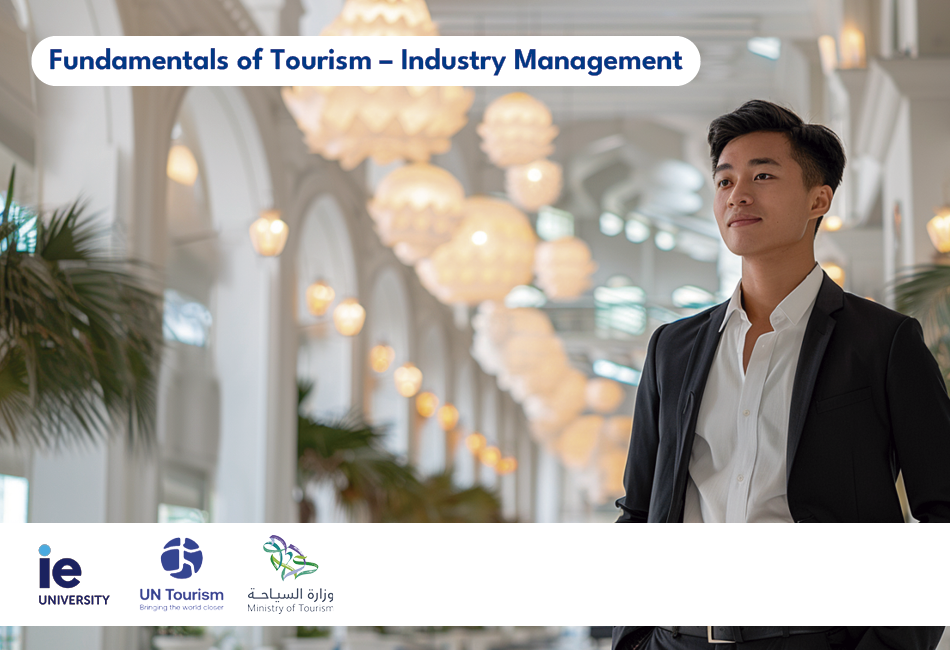
Fundamentals of Tourism – Industry Management
This Online Certified Program is aimed at professionals, managers and anyone else seeking to deepen their learning or update their knowledge in tourism sector management and its integration into tourism, hospitality and destination management. This is achieved through a 100% online training course which includes short videos with professors, readings, exercises, interactive learning materials and assignments in five modules (Digital Marketing, Finance, Strategy, Operations and Innovation & Digital Transformation).

Customer Experience Design: Differentiation Strategies for Brand Positioning
If customer value creation is the most important and crucial part of brand positioning today, then a lazer sharp focus on ultra-personalized services and experiences will drive business differentiation and customer engagement. Discover in this Online Certificate Program how the most successful companies in the world found their elements of differentiation and the key to sustainable business success.
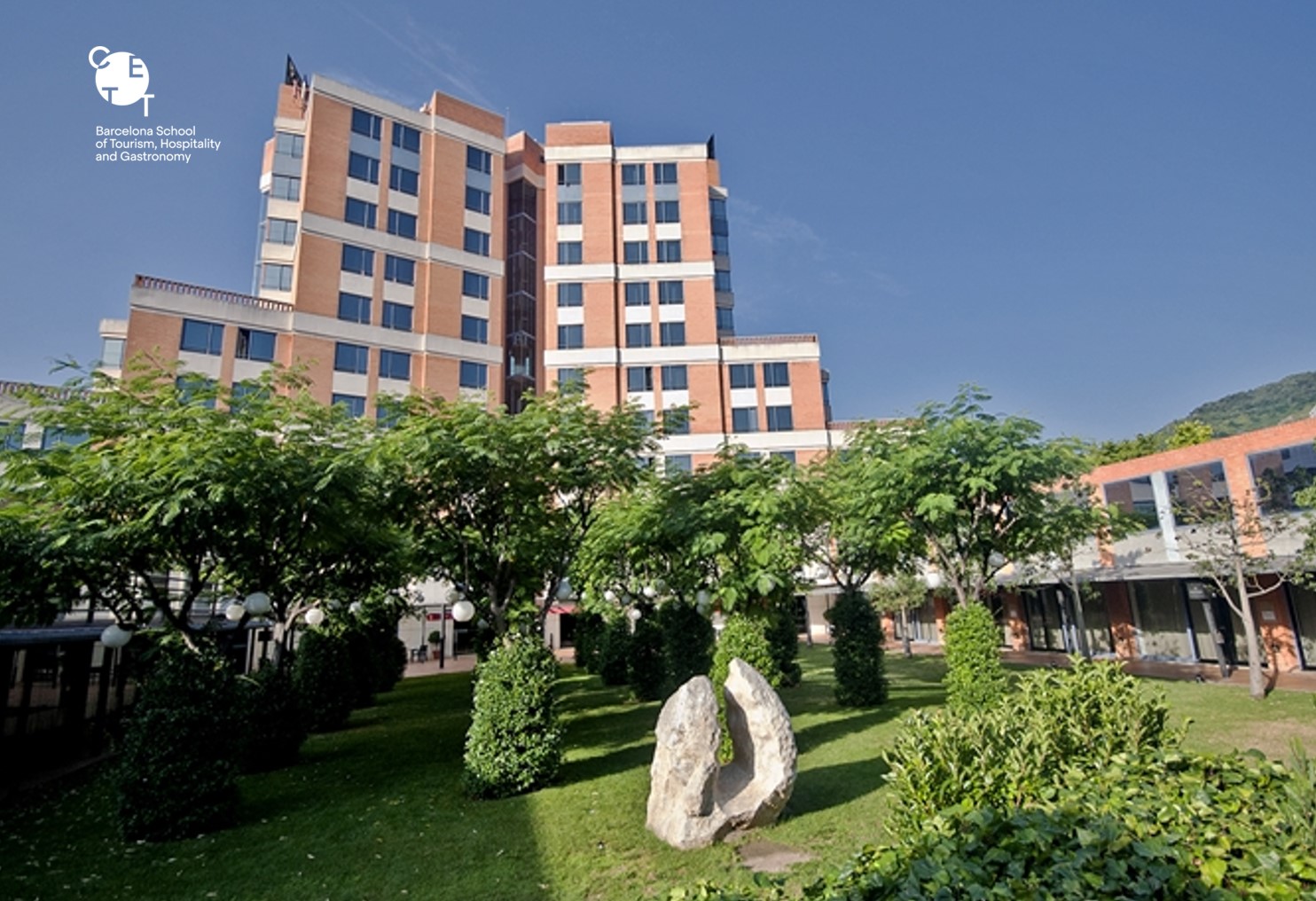
El revenue management: origen y evolución hasta las últimas tendencias
Actualmente, el sector turístico está experimentando una transformación en la comercialización y comunicación de los servicios y productos turísticos. Es por este motivo que la gestión de establecimientos turísticos se hace más compleja y requiere de profesionales bien formados para responder a las expectativas del cliente obteniendo, a la vez, la máxima rentabilidad.


Técnicas básicas de cocina
Las técnicas básicas de cocina son esenciales cuando hablamos de gastronomía. Su aprendizaje es importante y atemporal, por eso hemos diseñado este curso que proporciona los conocimientos y ayuda a desarrollar las habilidades fundamentales en las técnicas, las tecnologías y los productos necesarios para la elaboración de especialidades culinarias. El programa se divide en módulos que permiten ir consolidando progresivamente cada una de las técnicas con una metodología eminentemente práctica.
تقنيات الطبخ الأساسية
تعتبر تقنيات الطبخ الأساسية ضرورية عندما نتحدث عن فن الطهي. تعلمها مهم وصالحة لكل زمان، ولهذا السبب صممنا هذه الدورة التي توفر المعرفة وتساعد على تطوير المهارات الأساسية في التقنيات والتكنولوجيا والمنتجات اللازمة لتحضير تخصصات الطهي.

“This course has helped me immensely – these courses are of great value” – Vanessa Byrne
Sustainable Tourism Certificate Details
Taking the Courses Online: These courses, designed as a self-managed process, can be taken online, on your own schedule, in the comfort of your home or office. Whether you enroll in one course or complete the entire certificate program, each course offers you an excellent opportunity to acquire knowledge and skills needed to improve your professional standing. Each of the units in a course contains a course presentation which can be downloaded, and other online resources. Some units contain multi-media presentations for you to watch. After completing all of the units, you will be asked to complete a test. Once you successfully complete the test, you will have passed the course. Online students usually finish a course (the equivalent of 12 hours in the classroom) in about two weeks to a month.
Certificate Requirements
There are three certificates awarded with this program:
TIES Green Certificate:
To receive this certificate, you must take and pass the four core courses
— Introduction to Ecotourism — Ecotourism & Sustainable Tourism Assessment & Development — Ecotourism & Sustainable Tourism Management — Marketing Ecotourism & Sustainable Tourism Part I
TIES Certificate in Sustainable Tourism Management:
To receive this certificate, you must take and pass the four core courses and six additional course electives.
TIES Master Certificate in Sustainable Tourism:
To receive this certificate, you must take and pass the four core courses and twelve additional course electives.
To be listed on TIES website as a certificate holder, you must have been awarded a certificate and be a current member in good standing with TIES. You do not need to be a TIES member to hold the certification.
Registration Information: The cost for each course is $140 USD, with TIES premium members receiving a $40 discount*. You must register for courses with our education office and, while you may enroll in any number of courses at the same time, you must complete at least four core courses to receive the certificate. Once you register, you will be given access to TIES online distance learning platform, Teachable, which include course outlines.
Course Descriptions
TIES 601 – Introduction to Ecotourism
This course has been written to convey the fundamentals of modern ecotourism as it is being practiced now. Ecotourism is, by many estimates, an 800 billion to 1 trillion USD segment of the travel and tourism industry, and is regarded as one of the fastest growing , if not the fastest growing, segment of that industry. As such, it is impossible to encapsulate all that ecotourism is in one course.
The goal of this course is to give the student a way to evaluate and understand ecotourism in their context. It is hoped that this initial course will prepare the student to partake of and benefit from additional learning opportunities. The course will address the definition of ecotourism in its applied sense, both from the perspective of the definition shaped by academic and policy experience, and from the definition derived by observed practice. We expect that students completing this course successfully will be able to determine genuine ecotourism when they interact with it, whether it is in plan form or extant.
TIES 602 – Ecotourism & Sustainable Tourism Assessment & Development
The rapid growth of tourism worldwide has created many challenges and opportunities for established and emerging tourism destinations. This course looks at how to conduct a tourism assessment to examine ecotourism potential, and how to measure the potential costs and benefits of a sustainable tourism development program.
Course topics include:
• Expand economic development in your destination • Develop a community leadership model • Compile visitor profiles and economic impact data • Survey resident attitudes regarding tourism and its development • Conduct visioning and goal setting activities with your stakeholders • Assess tourism potential using a demand-driven marketing approach • Conduct a preliminary competitive-advantage analysis, using attraction and facility inventory techniques • Identify potential projects that contribute to economic development or investment promotion goals • Implement social, economic, and environmental project analyzes • Establish strategic alliances and partnerships
back to top
TIES 603 – Marketing Ecotourism & Sustainable Tourism Part I
A practical, intensive, idea-packed approach to marketing tourism destinations. Examine how and why tourists make destination choices, and learn how to develop a strategic marketing system that emphasizes your destination or attraction’s distinctive appeal. The course features case studies, and practical tips for stretching marketing budget through better monitoring, cost controls and evaluation.
• Identify and attract profitable market segments • Create appeals that resonate with visitor benefits • Establish strategic alliances and public-private partnerships • Prepare an action-oriented marketing plan • Spot opportunities in tourist spending patterns • Track preferences of target visitors • Add value to natural and cultural attractions • Create and link attractions together • Creating and managing social media campaigns • Measure the performance of your marketing campaign • Determine your return on your marketing investment
TIES 703 – Ecotourism & Sustainable Tourism Video Marketing
Approximately 3 billion people use digital media, with that number increasing every day. More and more travelers are selecting videos to get their information on prospective destinations. The ability to engage with a broader audience, specifically on digital platforms, where travelers spend on average 2.5 hours a day, is critical to appealing to those travelers. A large percentage of video engaged ecotourists are 18-29 years old – the fastest growing segment of ecotravelers. The TIES Ecotourism Video Marketing course will teach registrants how to create entertaining, informative, and concise video segments. Ecotourism professionals who specialize in this type of storytelling will stand apart. Registrants will be exposed to Vlogs, interviews, tutorial videos, video presentations, testimonials, and live streams. Utilizing video techniques in drafting a video copy script, conducting individual interviews, video filming, and editing a final video product will help registrants conceive short, effective videos that engage a potential traveler’s attention.
TIES 604 – Ecotourism & Sustainable Tourism Management
Ecotourism has proven to be an economically viable alternative for attracting tourism revenue without compromising local community values or degrading the environment. This course provides the tools needed by tourism planners, conservationists, businesses and communities to work together to develop ecotourism plans and products that will attract and accommodate the ecotourist while conserving natural resources and benefiting local people. Designed to help you understand the unique structure of the ecotourism industry, the course provides the most recent information on ecotourism marketing approaches and product development.
• Understand the basic elements of ecotourism, the market and market trends • Assess the potential of individual and group ecotourist specialty markets • Use green guidelines for operating a successful ecotourism business • Analyze and address the special needs of ecotourists and local communities • Establish an ecotourism planning process at the local and regional levels • Develop trip circuits and travel packages that are safe and offer a wide variety of experiences • Understand the vital role of interpretation and education in adding value
Frequently Asked Questions
Is there a deadline for registration? No. You can register any time throughout the year.
What are the steps I need to take to register? Do I receive confirmation for my registration? Follow the online links to sign up for classes and make payment. Yes, you should receive an email confirmation.
What is the cost per course? Each Course is $140 with TIES premium members receiving a $40 discount*.
Can I pay one course per time or should I pay for all courses at once? It is suggested that you pay for all courses at once, because you’ll receive a discount, but you can register for all or just one course if you wish.
Is a refund available? No, there are no refunds on distance learning courses.
Is there discount for taking more than 4 courses? Yes. The prices for additional courses are listed, with the discounts incorporated.
Is there discount available if two or more people from one organization sign up for the program? Is there a group rate? Yes. Contact us at [email protected] to find out more.
How soon after I register will I be able to start the courses? Your log in information will be provided in the registration confirmation that you will receive. Your registration is usually processed within 72 hours (except on weekends). Registration is available now
What kind of certificate will I receive upon completion of all certificate requirements? You will receive a professional Certificate in Ecotourism and Sustainable Tourism Management issued by The International Ecotourism Society (TIES). You will further, if you are a member of TIES in good standing, be listed on our website as a certified expert, should you wish it.
Do I get a certificate if I take only one course?
Yes, you receive a Letter of Completion for the specific course.
To achieve the Certificate in Ecotourism and Sustainable Tourism Management, you must register and complete ten courses. Each time you complete a course you will receive a Letter of Completion.
Where will my certificate be mailed? When? No. You will be sent a certificate suitable for printing by email.
Could these courses be counted as credits if I start a Master in Tourism Program? Not automatically. If you wish to take these courses for university credit, you must first arrange it with your institution and with TIES.
Is there a deadline for completing one course or the four courses for certificate? Are extensions available? Each course must be completed within two years. The entire certificate program must be completed within two years from the date you enrolled in your first course. Beyond two years, you may be asked to pay a $55 update fee.
Is there a certain pace I have to follow while in the courses? Are there deadlines for logging in and out and completing the sections within courses? No, you can cover the course materials with your own pace. There are no log in requirements as long as you complete each course within two years.
Should the four core courses be taken before the electives? Yes. We recommend that you take the core courses first as they provide the base of knowledge for the program, however, you are not required to take the courses in any particular order.
Who do I communicate with if I have questions during the course? The courses are self-managed courses. There is an education manager at TIES ([email protected]) that is available to answer any questions you might have.
Is any material mailed to me or everything is accessible online? All of your material is available on-line. Nothing is mailed to you.
If I score less than the required passing score on my test can I retake it? Yes, you may retake the test after a seven day waiting period. To do that, please contact us at ([email protected]) to reset your score. You may take the test as many times as you need.
Do I need to buy any textbooks? No, all of your materials are included in the on-line course. Any readings that are mentioned throughout the courses, but not provided to you are just recommended readings.
What are the career opportunities for me after completion of the certificate? Are there any networks of job/internship opportunities that I can access? Career opportunities in the travel and tourism fields are varied. We suggest you investigate whether this industry is a good fit for you and considering to join TIES as an individual member.
Is the program completely online or at some point I have to travel to another country to take the exams for example? The entire program is taken on-line.
What happens if my e-mail changes? You should alert the us if your email changes.
Who do I contact in case of technical problem with my access to online course materials? If you are experiencing technical difficulties with the access to your course contact us at [email protected].
Privacy Overview
Necessary cookies are absolutely essential for the website to function properly. This category only includes cookies that ensures basic functionalities and security features of the website. These cookies do not store any personal information.
Any cookies that may not be particularly necessary for the website to function and is used specifically to collect user personal data via analytics, ads, other embedded contents are termed as non-necessary cookies. It is mandatory to procure user consent prior to running these cookies on your website.
- WordPress.org
- Documentation
UN Tourism | Bringing the world closer
Share this content.
- Share this article on facebook
- Share this article on twitter
- Share this article on linkedin
In 2019, the One Planet Sustainable Tourism Programme is starting, with support the French Government, UN Environment and UNWTO, a cycle of online trainings to support tourism practitioners in integrating sustainable consumption and production patterns in their everyday operations. These trainings offer network members (and beyond) the opportunity to access free of charge short courses on the use of open tools and methodologies designed to advance the resource efficiency of tourism operations and will put a strong accent on the use of measurement and monitoring frameworks to better understand the environmental and social outcomes of SCP.
Online training 1. How to map tourism value chains & identify key actions

The first training of the cycle is organized in partnership with the UN Environment, WRAP and 3Keel within the frame of the “Promoting resource efficient and low-carbon development through transforming tourism value chains in developing countries and SIDS” project, which is funded by the German government’s International Climate Change Initiative.

Objectives of the training are to:
- Understand value chains and hotspots analysis concepts
- Learn how to map tourism value chains to identify and respond to environmental impact
- Become able to identify actions to address key environmental concerns, protect tourism assets and improve the resilience of the tourism sector
- Learn how to build a business case and workplan to address priority hotspots
- Explore policy frameworks to support tourism value chain actions
This one hour and half online training will help participants to better understand how to map the tourism value chain at a national, destination or business-level, in order to collaborate with value chain partners to improve the efficiency with which resources are used, reduce waste and greenhouse gas emissions and put tourism on a low carbon development path.
The value chain mapping approach included in this training has been developed and refined based on work undertaken in four countries where the tourism sector represents a significant proportion of national GDP, as part of the UN Environment “Transforming Tourism Value Chains” project, which is funded by the German government’s International Climate Change Initiative.
Mapping and managing the tourism value chain is all about extending your line of sight and influence beyond the traditional areas of focus on immediate supply chain partners, to take a more comprehensive look at the entire commodity, product or service chain. Map looks both upstream to primary producers and raw materials, intermediate suppliers and service providers; and downstream to consumers and end of life management (e.g. how to reuse, refurbish or recycle products used in the tourism sector or managing the waste streams arising from tourism activities responsibly and sustainably). The aim is to limit risk and add value at each stage of the value chain; and to guide the activities to be taken within the value chain based on the identification of hotspots, threats, opportunities and the creation of new partnerships and collaborations to address or capitalize on them.
Where possible, a map should be multi-faceted, containing operational, economic, environmental and social information.
Trainer:
The training will be conducted by Mark Barthel , a partner at UK-based sustainability and resilience practice, 3Keel, with over 25 years of experience of working on sustainability issues at the international, national, sector and business-level. During his career he has advised a range of different organizations from UN agencies, the European Commission and UK government departments; to major international brands and well-known international NGOs.
Moderator:
The training session will be moderated by Sandra Averous-Monnery , Programme Officer within the Consumption and Production Unit of the Economy Division, UN Environment. With 12 years of experience in UN Environment, mostly on sustainable consumption and production, she is responsible for eco-innovation, circular economy and global value chains work, and contributes to the project on “transforming tourism value chain”.
Online Trainings
- Presentation of the training in PDF
- Presentation of the training in Powerpoint Presentation
- Concept Note
For more information on the online training, please kindly contact
- UN Environment : Sandra Averous-Monnery : [email protected]
- One Planet STP Coordination Desk: [email protected]
- Request Info
- Bachelor's Degrees
- Master's Degrees
- Ph.D. & Doctoral Degrees
- Grad Certificates
- Professional Ed
- Undergraduate Minors, Certificates, & Training
- Professional Development & Training
- Credit Courses
- Noncredit Courses
- All-University Core Curriculum
- Free Online Courses
- Osher Lifelong Learning Institute
- Professional Ed d
- Contact Us d

Select one of the options below:
Tourism Management M.T.M.
CSU's online master's in tourism management helps you develop your business management acumen, enhance your knowledge of industry practices, and understand the social and environmental impacts of global tourism — so you can live the lifestyle you love while working to create positive experiences for others.
Gain the advanced skills to thrive in an evolving industry
Global events, an evolving market, and new technology have all changed the way people engage in tourism activities. As a result, more consumers now seek regional experiences with greater personalization and a focus on sustainable, meaningful, and authentic experiences.
Start building the industry-specific knowledge you need to become a well-rounded leader in a tourism management role.
Learn a whole-system approach
Gain foundational skills as you study a holistic, integrated approach to sustainable tourism management. Explore technological and strategic business solutions that can help you operate a more agile, streamlined operation. Investigate the social and environmental impacts of this evolving industry as you learn to balance the ethical treatment of people and resources while running a profitable venture.
Throughout this master’s program, you will learn:
- Financial management processes and tools
- Effective marketing and communication strategies
- How to use data to gain insight and guide business decisions
- How to strategically and ethically manage both people and resources
Inspired by exploring the outdoors or regional cultures? Looking to align who you are with what you do? Tourism offers many options for shifting into a new career or advancing into a management role within the industry.
Build the specialized skills to make a meaningful impact on the world while doing something you love.
Gain a competitive career advantage with employers specializing in:
- Hospitality and resort management
- Outdoor and adventure travel
- Tourism management
- Destination management or marketing
- Event management
- Cruise management
- Agritourism
Start your own tourism venture
Our graduates have established roles in a variety of tourism settings all over the country and world. Some examples are numerous hotels, City Parks and Recreation Departments, and more specifically – Beaver Creek Resorts, The Cliff Lodge – Snowbird, Visit Fort Collins, Vail Resorts, U.S. Forest Service, Into the Vineyard - Wine-Inspired Travel, Adventure Sixty North, Natural Habitat Adventures, Colorado Forest Restoration Institute, Yellowstone Campgrounds, Cruise Norway, Steamboat Spring Chamber of Commerce, Universal Studios Beijing, and Taiwan Ministry of Tourism.
Graduates work in tourism positions relating to marketing, operations, event planning, and some have even founded their own companies. This program has helped students enter the tourism industry, as well as elevate their career if they were already in the tourism field.
"My online learning experience with CSU was amazing. All the professors were amazing and got back to me in a timely manner. They are so knowledgeable, helpful, and kind. They answered all my questions. I’m grateful to be part of this community."

Current role : Founder, Adumu Safaris
"The Tourism Management program at CSU significantly elevated my expertise in sustainable tourism and adventure travel and expanded my network of social entrepreneurs. With this knowledge, I established Adumu Safaris, a socially responsible safari tour company aimed at empowering my Maasai tribe in Tanzania through community-accountable ecotourism. CSU's training equipped me with leadership, finance, and sustainable tourism skills, which I now use to create transformative journeys for travelers."

Caroline R.
"My graduate program at CSU has been instrumental in my current position, where I oversee multiple departments within a hotel/lodge. The ski area management certification and M.T.M. skills I gained are vital in running a successful resort. Learning about resort finances, creating memorable guest experiences, and fostering guest loyalty have been invaluable. Connecting with professors, like skiing with one at Snowbird, provided valuable insights. My advice to current and prospective students: Engage with professors to gain informative career guidance. CSU's program equipped me with the knowledge and tools necessary for success in my industry, particularly in hotel operations and finance."
As a student in CSU’s online tourism management master’s program, you receive the same education, learn from the same faculty, and earn the same regionally accredited degree as students on campus. Additionally, you can expect:
- The Ability to Graduate in Less than a Year: In just nine months you can earn an industry-specific master’s degree that helps set you apart when seeking employment or advancement in the tourism industry.
- A Focus on People and the Planet: Learn to provide meaningful travel experiences for clients while making business decisions grounded in sustainability and social responsibility. Explore the types and extent of tourism impacts on natural resources. Discover methods for reducing the ecological footprint of tourism activities and destinations. Learn how to increase tourism's contribution to natural resource conservation while improving human welfare in the process.
- Preparation in Fact-Based Decision-Making: This program incorporates courses in global tourism policy (NRRT 662) and two courses in quantitative analysis (NRRT 601 and 602) to equip you with the knowledge needed to make smart, meaningful business decisions driven by data.

Alan Bright, Ph.D.
Alan's teaching responsibilities include on-campus and distance coursework for the M.T.M. program and courses in the natural resource tourism program. Alan's primary research interests center around theoretical applications of social psychological constructs toward the management of natural resources, including values, attitudes, behavior, and the complexity with which people think about issues. These constructs are also considered in the context of attitude and behavior change. Alan's teaching interests focus on development and administration of coursework in the tourism undergraduate and graduate programs.

Christina T. Cavaliere, Ph.D.
Cavaliere is an environmental social scientist with a focus on linking tourism and biocultural conservation. Her areas of research involve the human dimensions of socio-ecological systems including tourism impacts. She serves as an Assistant Professor of Human Dimensions of Natural Resources in the Warner College of Natural Resources at Colorado State University in Fort Collins, Colorado. Dr. Cavaliere investigates aspects of sustainability and climate change impacts related to gender, conservation, aviation, wildlife, and governance. View Dr. Cavaliere’s full bio .

Stuart Cottrell, Ph.D.
Stuart teaches courses in ecotourism, sustainable tourism development, protected area management, and research in human dimensions of natural resources. His research focus includes sustainable tourism, travel and tourism behavior, visitor impact management, and public perceptions of landscape disturbance issues. Present projects involve a National Science Foundation grant to examine land management agency and water provider perception of pine beetle impacts on water quality. As a former resident fellow with the School for Global and Environmental Sustainability, Stuart conducted a preliminary study of the impacts of mountain pine beetle infestation on recreation and tourism, which led to the present NSF project. One of the highlights of Stuart's teaching involves the monitoring of diseased corals and volunteer based conservation projects for an NGO in the Bahamas.

David Knight, Ph.D.
David has developed a unique transnational skill-set in sustainability and tourism management living and working in the U.S., Spain, the Philippines, Peru, and China. Drawing from experience as director, educator, researcher, consultant, collaborator, and confidant, David’s growing university-level leadership underscores his passion for partnerships and diversity in working with real-world organizations and communities to provide tangible, experiential learning opportunities for students. His research and consulting projects for organizations operating from local to international levels have analyzed a variety of sustainability and tourism issues pertaining to National Parks, Chinese tourist behavior, marine protected areas, and rural (e.g., Machu Picchu) community development. Ultimately, David hopes to employ his experience, compassion, and intellect to support institutions of higher learning in empowering diverse communities through exceptional outreach, student recruitment/retention, advising, teaching, and research activities.

Mike Manfredo, Ph.D. Head
Michael’s research focus is on understanding human thought about wildlife and natural resources. The goals of his current research program are: to increase the availability of human dimensions information relevant to wildlife and natural resource management; to provide for increased understanding of the role of human dimensions information in natural resources decision-making; to facilitate the integration of human dimension information into the natural resource decision-making process.

Dr. Sarah Walker
Dr. Sarah Walker’s research uses an environmental justice lens to investigate the role well-being can play in helping us better understand people’s relationships with their environments. Specifically , she studies human well-being in the context of climate resilience and adaptation in vulnerable communities around the world. Her work also investigates the well-being benefits of spending time in nature. Sarah received her PhD from Colorado State University and is currently completing her post-doctoral training at University of Colorado Boulder. She’s an avid hiker and cyclist, and loves being in the classroom with students.

Lina Xiong, Ph.D.
Lina Xiong is an assistant professor in the Department of Human Dimensions of Natural Resources. She is also called "Dr. Bear," because her last name in Chinese means bear. Dr. Bear came to the U.S. in 2006 from mainland China. Lina completed her Ph.D. in Business Administration from Temple University in Philadelphia. Before coming to CSU, Dr. Bear had taught many business courses in the College of Business at Marshall University. Her teaching assignment at CSU includes tourism strategic management, tourism marketing, and advanced lodging in the Master of Tourism Management program. She is also responsible for developing several M.T.M. courses in mandarin. Dr. Bear's research interests include service management, internal branding, employee brand motivation, and customer loyalty. She has published several articles in hospitality management journals. Recently, Dr. Bear's dissertation, titled, "Employee Brand Internalization: The Central Route to a Brand Aligned Workforce," has received a Highly Commended Award of the 2014 Emerald/EFMD Outstanding Doctoral Research Awards in the Hospitality Management category. This is a prestigious international annual award presented by Emerald and the European Foundation for Management Development (EFMD). She has worked in hospitality and tourism businesses in both China and the U.S.
What is tourism management?
Tourism management is a field of study that explores the theory and practice of creating, overseeing, and marketing tourism ventures. Management professionals in the tourism industry typically require skills in leadership, finance, and business operations. The online tourism management program offered by CSU has a unique focus on natural resource management and tourism policy.
What can I do with a degree in tourism management?
As the industry continues to evolve, there are many new and unique opportunities for professionals with an advanced tourism management degree. Graduates of the online Master of Tourism Management program will be qualified to work in fields that include: hospitality and resort management, outdoor and adventure travel, event management, agri-tourism, ecotourism, and more. Anyone intending to create their own tourism enterprise will also benefit from completing this program.
Why study tourism management?
There are numerous rewarding career opportunities in the tourism industry for people with the right skills. In the U.S. alone, tourism supports more than 15 million jobs and generates nearly $2 trillion in economic output, according to the U.S. Travel Association. Working in this industry is often appealing to individuals with a passion for travel, exploration, adventure, and the outdoor lifestyle. The primary goal of tourism ventures is to provide customers and clients with positive experiences.
What jobs can I get with a tourism management degree?
Graduates of the tourism management master’s program gain the managerial skills to create entrepreneurial ventures, or take leadership roles in the industry. Career opportunities in tourism management range from agri-tourism to hospitality and resort management. Students gain the skills to build careers as tourism program directors, event coordinators, sales managers, account executives, marketing managers, customer experience managers, and many others.
What is the average salary for hospitality and tourism?
Salaries vary widely in the hospitality and tourism industry depending on the specific job, region, and other factors. According to Glassdoor, the average annual salary (U.S.) for a tourism marketing manager is $80,673, and the average salary for a hotel manager is $59,461. The median annual salary for a resort manager is $46,342, according to PayScale.com.
What is sustainable tourism management? What is ecotourism management?
Sustainable tourism management is an approach to the business of tourism that values the environment and social responsibility as much as profit. Ecotourism is a subset of sustainable tourism that primarily focuses on exotic, remote, and/or threatened natural areas such as rainforests, coral reefs, and other fragile ecosystems. The typical goal of ecotourism is to promote the conservation of these areas by helping tourists experience them while creating minimal or no environmental impact. A portion of profits from some ecotourism ventures may also be used to help fund various conservation efforts.
Can I get a graduate certificates along with this master’s degree?
Yes. You can apply up to 12 credits of the Communication for Conservation certificate toward the Master of Tourism Management degree.
What is the average timeframe to complete the program?
The online Master of Tourism Management can be completed in two semesters. However, for students who are working full-time, this is likely an unrealistic timeframe. The average student completes the program in two years, but some students may take longer. The flexible, online program allows you to earn your degree at a pace that suits your lifestyle and goals.
Are summer classes an option?
No. All coursework in the program is during the fall and spring semesters.
What fees should I expect to pay in addition to tuition?
In addition to the tuition, students will pay a $32/semester technology fee. There will also be an added cost for books and texts.
The Master of Tourism Management requires completion of 30 credits, with a minimum of four elective credits.
All courses are eight weeks with some courses offered the first part of a semester and others in the second part of a semester. Please work with a Program Coordinator to determine your approved course plan:
Kathryn Metzger Program Coordinator, Tourism Enterprise Program (970) 491-7617 [email protected]
Linda Sawyers Program Coordinator, Tourism Enterprise Program (970) 491-7592 [email protected]
M.T.M. Curriculum
Fall semester: first 8-week session.
- NRRT 600 – Tourism Industry Concepts and Practices (2 cr.)
- NRRT 620 – Organizational Management in Tourism (2 cr.)
- NRRT 655 – Tourism Marketing Concepts and Applications (2 cr.)
- NRRT 679A – Current Topics in Nature-Based Tourism (1 cr.)
Fall Semester: Second 8-week Session
- NRRT 608 – Nature, Outdoor Recreation - Human Well-Being (2 cr.)
- NRRT 615 – Sustainable Tourism Development Foundations (2 cr.)
- NRRT 650 – Financial Management in Tourism (2 cr.)
- NRRT 679B – Current Topics in Nature-Based Tourism (1 cr.)
Spring Semester: First 8-week Session
- NRRT 601 – Quantitative Analysis in Tourism I (2 cr.)
- NRRT 677 – Project Management and Event Planning (2 cr.)
- NRRT 671 – Strategic Management for Travel and Tourism (2 cr.)
- NRRT 567 – Tourism Entrepreneurship (2 cr.)
Spring Semester: Second 8-week Session
- NRRT 609 – Tourism and Conservation (2 cr.)
- NRRT 625 – Communication/Conflict Management in Tourism (2 cr.)
- NRRT 678 – Tourism Leadership (2 cr.)
- NRRT 667 – Applied Experiential Learning in Tourism (2 cr.)
Elective Options:
Students can take the electives listed below or other electives may be approved by an advisor.
You may substitute some of the M.T.M. courses with electives from the Communication for Conservation graduate certificate program.
The are some additional options, such as RRM 520 – Lodging Management , available as well. Please contact your Program Coordinator to determine your approved course plan.
Application Deadlines
Start your application online and upload materials directly into the online system. You can save your progress and return any time.
Applications are reviewed once they are completed. You can expect to be notified of your application status within two weeks of submitting all application materials.
1 Review Admission Requirements
The tourism management master's degree requires that students have the following:
- Bachelor's degree from a regionally-accredited institution.
- A 3.0 GPA on all undergraduate coursework. For applicants who do not meet the 3.000 cumulative GPA requirement, this is an alternative admission pathway. Applicants can gain formal admission if they have a cumulative GPA between 2.800 and 3.000 or have a cumulative GPA below 2.800 and have taken six credits of regular, graduate‐level coursework (500 level or higher) at CSU and obtain a B or better in all courses.
- GRE scores are not required.
2 Prepare Application Materials
- A Statement of Purpose essay describing how this program aligns with your goals and why you’re applying for this degree.
- Your Resume or Curriculum Vitae (CV).
- Two letters of recommendation (generally from professional or academic references).
- One transcript from EACH university attended (if previous course work has been completed at Colorado State University-Fort Collins, transcripts are not required).
Please Note: Students may be unconditionally admitted and registered in their first semester of courses with an unofficial transcript. Official transcripts must be submitted, prior to or during your first semester, before you can register for your second semester of graduate work. Failure to meet this condition will result in your dismissal from the Graduate School.
- Digital Transcripts must be submitted by the originating institution using a secure service such as parchment, eScrip-Safe, the National Student Clearinghouse, or e-Quals. Transcripts received via e-mail are considered unofficial. Use institution code 4075 for Colorado State University or [email protected] if the secure service requires an email address.
- Graduate Admissions
- Colorado State University - Office of Admissions
- 1062 Campus Delivery
- Fort Collins, CO 80523-1062
3 Complete Online Application
Complete the online graduate application and pay the nonrefundable application processing fee (payable online). As soon as you have completed the required information, please submit your application. Your application will not be reviewed until it is complete and all required materials have been received.
- Select "Tourism Management (M.T.M.) – Distance" when choosing the program of study.
4 Request Official Transcripts
Request one official transcript of all collegiate work completed from all institutions attended. Transcripts from Colorado State University are not required. Transcripts must be received directly from the originating institution to be considered official.
Electronic (preferred): Digital Transcripts must be submitted by the originating institution using a secure service such as parchment, eScrip-Safe, the National Student Clearinghouse, or e-Quals. Transcripts received via emails are considered unofficial. Use institution code 4075 for Colorado State University or [email protected] if the secure service requires an email address.
Mail (if necessary) Graduate Admissions Colorado State University – Office of Admissions 1062 Campus Delivery Fort Collins, CO 80523-1062
Check Your Application Status
View your application status at any time to ensure your application checklist is complete or to check on updates.
For International Applicants
Proof of English language proficiency is required for applicants from countries or United States territories where there are official languages other than (or in addition to) English. This includes the U.S. territories of American Samoa, Guam, the Northern Mariana Islands, and Puerto Rico.
Learn more about English language proficiency requirements .
We love learning about your goals and answering any questions you have.

Program Details
- 3.0 GPA on all undergraduate coursework
- Math Entrance Exam scores recommended for applicants who have not taken the required prerequisites within the past 10 years
Application Dates
Request information.
By providing your information, you consent to receive calls, emails, and/or text messages from CSU Online. Consent not required to purchase goods or services. For more info, call 1-970-491-5288 . We respect your privacy . This site is protected by reCAPTCHA and the Google Privacy Policy and Terms of Service apply.
- Accreditation
- Dates & Deadlines
- Faculty & Staff Resources
- Classroom Locations
- p (970) 491-5288
- e 2545 Research Blvd. Fort Collins, CO 80526
- Privacy Information
- State Authorization Disclaimer
- Equal Opportunity

- GSTC Mission & Impacts
- GSTC History
- Market Access Program
- GSTC Board of Directors
- Assurance Panel
- Working Groups
- GSTC Sponsors
- GSTC Members
- Recruitment
- Contact GSTC
- GSTC For the Press
- Criteria Development, Feedback & Revisions
- Sustainable Tourism Glossary
- SDGs and GSTC Criteria
- GSTC Industry Criteria
- GSTC Destination Criteria
- GSTC MICE Criteria
- Criteria Translations
- GSTC-Recognized Standards for Hotels
- GSTC-Recognized Standards for Tour Operators
- GSTC-Recognized Standards for Destinations
- Recognition of Standards (for Standard Owners)
- GSTC-Committed
- Certification for Hotels
- Certification for Tour Operator
- Certification for Destination
- Accreditation for Certification Bodies
- Accredited Certification Bodies
- Stakeholder Consultations
- What is Certification? Accreditation? Recognition?
- Sustainable Tourism Training Program (STTP)
- Upcoming Courses
- Professional Certificate in Sustainable Tourism
- Professional Certificate in Sustainable Business Travel
- GSTC Trainers and Partners
- FAQs: GSTC Training Program
- Organization Membership Application
- Destination Membership Application
- Membership Policy
- Membership Categories & Fees
- Membership Payment Options
- Webinars for GSTC Members
- Members Log In
- Upcoming Webinars
- GSTC2024 Singapore, Nov 13-16
- Upcoming Conferences
- Past Conferences
- Destination Stewardship Report
Innovation Norway Advances Sustainable Tourism Through Collaboration
(June 18, 2015) Innovation Norway continues to champion sustainable tourism with their recent launch of the country’s Sustainable destination standard. Since May, four destinations in Norway have achieved the new label and one has received the prestigious World Travel & Tourism Council’s (WTTC) Tourism for Tomorrow Award for Destination Stewardship. Innovation Norway has successfully advanced their standard rapidly due to the nation’s foundation in love for nature and their unique ability to unite a broad range of stakeholders toward the common goal of sustainable tourism.
Innovation Norway’s Sustainable Destination Standard
Innovation Norway’s Sustainable destination standard includes 45 criteria and 108 indicators to be measured, registered and monitored. The standard covers nature, culture, environment, social values, community involvement and economic viability. Measurable and continuous development are ensured through performance counts and renewing the brand every three years. Once a destination is chosen, Innovation Norway applies the standard through a series of implementation and monitoring methods. Then, a committed resolution is formed by the municipal council to support sustainable development in tourism and similar commitments are made by the tourism operators. After that, the implementation of the standard can occur. This includes tasks like establishing internal transport, energy saving initiatives, local food and cultural projects, signposts and building recreation trails. Jointly, a monitoring process occurs that includes documenting the overall use of local food, local culture, energy, waste production, and cultural assets in the destination. The entire process takes approximately two years. It’s the comprehensive nature of Innovation Norway’s standard and the application to broad stakeholders that make their standard successful and easier to implement.
Contributions to sustainable tourism
With the new label of ‘Sustainable destination’, Norway takes a lead in the international efforts to promote sustainability in tourism and destination development. In order for a destination itself to achieve certification as ‘sustainable’, a broader set of criteria must be met. A consistent effort to plan for sustainable tourism and support and strengthen environmental programs over time is required, as well as working to preserve the destination’s history, character and nature. In addition, certification places demands on the development of the destination’s businesses and society following principles of sustainability.
Inguun Sørnes, a special advisor to Innovation Norway remarked, “As a nationally implemented certification for destinations, ours was the only one we could find at the time we developed and launched in early 2013. At that time we had been working for 3 years on developing sustainability as a base for local destination development, and prior to that we ran a development program for single enterprises and sectors in tourism in finding a way to increase sustainability in the industry. The industry pointed at competence and certifications as core elements in increased sustainability focus, and we built both competence programs and increased awareness on the use of certifications.”
In 2012, Destination Røros, Norway received the prestigious WTTC Tourism for Tomorrow Award for Destination Stewardship. The awards are among the highest accolades in the global travel and tourism industry, giving international recognition to best practice examples of sustainable tourism in action.
Advancing sustainable tourism
The variety of different industries that form Innovation Norway allow for a cohesive network unlike any other National Travel Organization. Innovation Norway’s standard contains specific criteria and indicators asking the destination to increase the number of single enterprise certifications (hotels and tour operators), thus enabling the destination certifications to not compete, rather support the other certifications. Also a division of Innovation Norway is ‘Visit Norway’ which provides a listing of all tourism products and enterprises that are environmentally labelled with a tag named “Green Travel” and most closely resembles the GSTC Criteria . Today, this covers five independent certifications. Innovation Norway collects the information and makes the identification of the label available for the users of the site. Innovation Norway’s ability to integrate their sustainability standards into other industries has allowed them to advance sustainable tourism beyond other National Travel Organizations. To date, four destinations in Norway have achieved the Sustainable destination label.
About Innovation Norway
Innovation Norway is the result of a merger between four organisations; The Norwegian Tourist Board, The Norwegian Trade Council, The Norwegian Industrial and Regional Development Fund, SND and the Government Consultative Office for Inventors, SVO. The Norwegian Tourist Board operates as the nation’s National Travel Organization (NTO) and provides support to the tourism industry including the national brand Visit Norway.
Share This Story, Choose Your Platform!
Related posts.
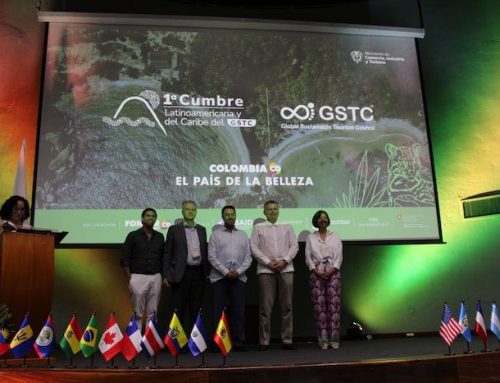
The first GSTC Latin American and Caribbean Summit took place in Santa Marta, Colombia, with 150 attendees from 25 countries

Open position: GSTC Accreditation Coordinator
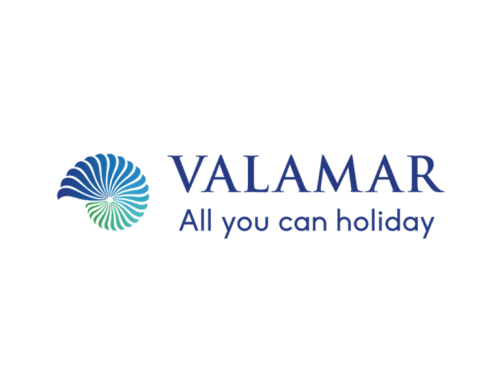
Valamar Riviera Joins GSTC

COMMENTS
GSTC Professional Certificate in Sustainable Tourism. Those who achieve a 80% pass mark on the Sustainable Tourism Course Exam will receive a GSTC Professional Certificate in Sustainable Tourism. This certificate is specific to the GSTC Sustainable Tourism Course, and is for individuals who have demonstrated the required level of knowledge.
Sustainable Tourism Destination Management courses are offered in bundles of three a few times a year. Register for Courses 701, 702 and 703 Register for Courses 704, 705 and 706. For more information about the Professional Certificate in Sustainable Tourism Destination Management, please email us at [email protected].
Sustainable Tourism Online Course - GSTC Training (August 29 - September 27, 2024) Ayako Ezaki 2024-05-27T20:19:15+08:00 January 1st, 2024 | CURRENT PUBLIC CONSULTATIONS
The GSTC Sustainable Hospitality course is designed for hospitality and accommodation professionals, and provides practical insights into sustainability practices for hotels. Delivered as an on-demand, self-paced online course, the GSTC Sustainable Hospitality course reviews the GSTC Industry Criteria with Performance Indicators for Hotels.
Course Overview. This course aims to train global hospitality and tourism professionals in using sustainable practices across all areas of the tourism industry. Throughout the course, you will be introduced to innovative, data-driven methods for destination management, delivered by over 20 world-renowned experts in the field.
A sustainable tourism certification affirms your knowledge and capabilities in the travel sector. It shows that you can: Balance the need for profit with the importance of sustainability. Craft equitable, environmentally-conscious responses to issues and opportunities in the travel industry. Take all stakeholders into account when making decisions.
This module will present the global trends in tourism and its social and environmental impacts. Policies and strategies aimed at developing a more sustainable form of tourism in low-income countries will be discussed, including the role of sustainability certification systems for hotels and destinations.
GreenStep Sustainable Tourism provides assessments, programs, and certifications to help tourism destinations and businesses measure and improve their sustainability performance. ... Sustainable Tourism certification. Take your commitment to the next level and become GreenStep Sustainable Tourism Certified with our Global Sustainable Tourism ...
This online course, ranked among the 10 best online courses in the world by Class Central, is part of the Professional Certificate Programme Tourism in Transition: Exploring a Sustainable Future, along with the MOOC Sustainable Tourism: Rethinking the Future, which was nominated for the annual edX® award in 2019 and the MOOC Tourism and ...
The Tourism Online Academy is an online learning platform that will provide self-paced, 100% online courses that mainly focus on concepts, areas of interest and fundamental principles related to the tourism sector, addressing the challenges it faces such as globalization, digital revolution, travel marketing and sustainability, among others.
Sustainable Tourism Certificate Details. Taking the Courses Online: These courses, designed as a self-managed process, can be taken online, on your own schedule, in the comfort of your home or office. Whether you enroll in one course or complete the entire certificate program, each course offers you an excellent opportunity to acquire knowledge ...
The Preferred by Nature Sustainable Tourism certificate is valid for a period of three years. Within this certification cycle, you will need to undergo annual audits to verify your continued compliance. This will be scheduled within 60 days prior to the anniversary date of the certificate. To renew the certificate and start a new certification ...
The GSTC Sustainable Tourism Training online classes are offered quarterly, and delivered in the 4-Week Course format, which combines the convenience of online, on-demand lessons and the benefits of interactive people-focused learning. The class follows a weekly schedule (one module per week), and includes: Video lessons and readings that can ...
Explore sustainable tourism with us! Welcome to Travindy's sustainable tourism academy. We offer online courses and workshops for people, who are just interested in sustainable tourism and those, who work in the industry and want to build and manage an environmentally-friendly and socially-responsible tourism or hospitality business.
In 2019, the One Planet Sustainable Tourism Programme is starting, with support the French Government, UN Environment and UNWTO, a cycle of online trainings to support tourism practitioners in integrating sustainable consumption and production patterns in their everyday operations. ... Video of the online training of the 17th (10:00 - 11:30 CEST)
Stuart teaches courses in ecotourism, sustainable tourism development, protected area management, and research in human dimensions of natural resources. His research focus includes sustainable tourism, travel and tourism behavior, visitor impact management, and public perceptions of landscape disturbance issues.
With the aim of making Seychelles an international best practice example for sustainable tourism, the Foundation is implementing a 5-year strategy through an integrated collaborative approach between public, private sector, academia and NGOs. Diana Körner. Chair of the Board at Linking Tourism and Conservation. Published:
In an article summing up 20 years of research and debate on sustainable development and relating this to tourism, Andrew Holden concludes [] (p. 372): "Thus, twenty years after the publication of the Brundtland Report…the subsequent advocating of sustainable tourism by international agencies including the United Nations World Tourism Organization (UNWTO), United Nations Environment Program ...
Its urgency is determined by the overall high value of tourism to the sustainable development of cities/towns and countryside. Undoubtedly, natural resources can be found and effectively exploited on both rural and urban areas. This special issue hosts four contributions devoted to rural or urban tourism employing natural resources.
Innovation Norway's Sustainable destination standard includes 45 criteria and 108 indicators to be measured, registered and monitored. The standard covers nature, culture, environment, social values, community involvement and economic viability. Measurable and continuous development are ensured through performance counts and renewing the ...